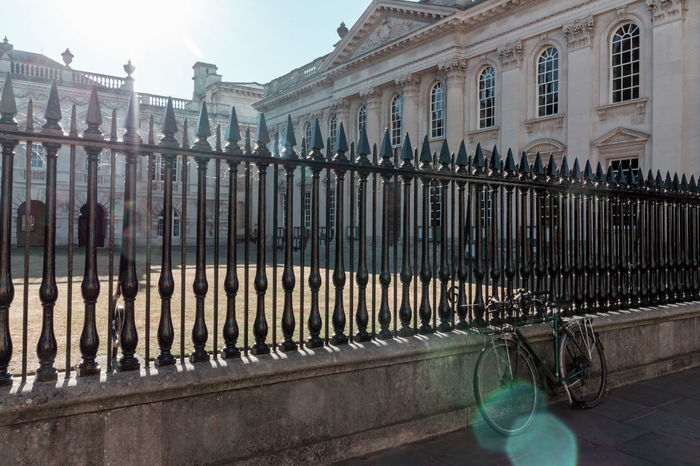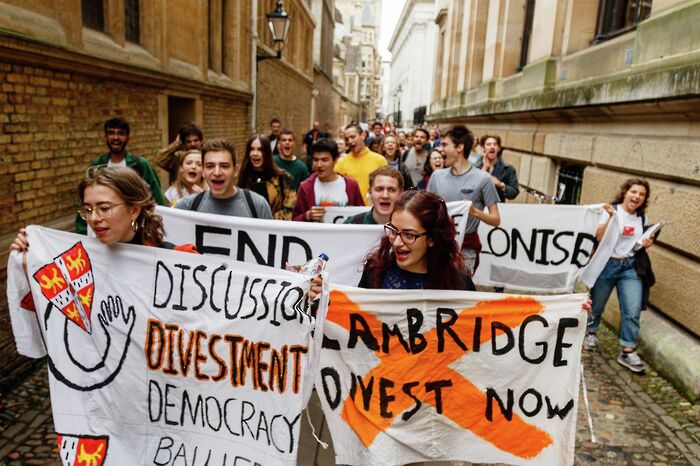Outrage at the Prevent policy should not be exclusively reserved for Extinction Rebellion
In light of Extinction Rebellion being labelled as an extremist ideology, student campaigner Stella Swain argues that much of the outrage surrounding this is misplaced

Earlier this month, The Guardian revealed that the climate campaign group, Extinction Rebellion (XR), had been placed on a list of “extremist ideologies” under the Prevent duty. Since then, there has been much discussion about the outrageous labelling of environmental and leftist groups as “extremist,” but we must not forget the way in which Prevent has been impacting Muslim and BME communities for years, and that such legislation will always be most sharply felt by these groups.
As Isabella Rooney wrote in her Gal-Dem article on this topic, what Extinction Rebellion fails to mention in their rebuttal of this listing is that it’s not “all” of us who are likely to be impacted by Prevent. Yes, XR are targeted because they present a challenge to the status quo, but its white members do not face the same persecution under Prevent that BME people – and Muslims in particular – have experienced for years.
XR must use its platform to raise the voices of those whose concerns have never been listened to. Those of us speaking about Prevent now must do so in awareness of who it affects most, and of the assumptions that we play into when we declare our particular disgust at Extinction Rebellion being labelled as “extremist.”
“...the Prevent duty not only turns institutions into police agents, but it embeds surveillance into their work.”
Prevent was introduced as part of the government’s counter-terrorism strategy, ‘CONTEST,’ in 2003. In 2015, it became a legal duty for public sector institutions – including universities, schools and hospitals – to report instances of potential “radicalisation.” Since then, students in Cambridge have been campaigning against its implementation, seeing the abolition of Prevent as part of the struggle for a free, anti-racist university.
The ideology behind Prevent sees “radicalisation” as part of a conveyor-belt to terrorism: it depends on organisations acting on suspicion, on the preemptive policing of certain bodies and beliefs because of their perceived potential to cause violence. In a society where certain people are already seen as dangerous, this kind of legislation relies on – and reinforces – violent racial stereotyping, creating a climate of suspicion and fear that particularly affects Muslims and BME people.
By demanding reporting based on the suspicion of potential future threat, the Prevent duty not only turns institutions into police agents, but it embeds surveillance into their work. In a university context, this restricts academic freedom. For one, there have been multiple cases of BME and Muslim students being told to be careful studying certain topics on their courses – such as the student interviewed by Varsity in 2018 whose supervisor warned him not to “raise any alarm bells” after giving him topics such as Hezbollah to study.
“Prevent is not a ‘neutral’ strategy, nor is it colour-blind.”
Additionally, we’ve had a ‘neutral chair’ imposed on a panel discussing Palestine, because the SOAS academic that had been invited, a woman of colour, supposedly could not be trusted to keep the conversation ‘neutral.’ The University had to apologise for this heavy-handed implementation of Prevent, admitting that it “was the wrong response.” However, this is merely one of the more visible examples of the way BME students and staff have felt intimidated, watched, and ultimately reluctant to engage in university life because of Prevent.
The claim from the police, echoed by many in XR, is that including such environmental groups in the advice on Prevent was an “error of judgement.” However, this framing concedes that Prevent can be applied “correctly” – that there are some groups that should be subject to intense surveillance and suspicion.
Bizarre collaboration between the police force and this supposed insurgency aside, such language implies a disappointingly narrow vision from XR. This is the time for real solidarity, for groups like XR who have suddenly found themselves at the mercy of such draconian policy to stand unequivocally with anti-racist groups that have been campaigning against Prevent for years.
At the very least, we should reject Prevent in its entirety, renouncing the assumption that we can somehow “predict” extremism in any form. Criminalisation and increased surveillance will always be racialised.
Last year, changes to the way Prevent implementation was monitored by the national regulator for universities, the Office for Students, meant that Cambridge colleges were told they should include all data about welfare support for students as part of their annual report on Prevent, whether or not those welfare cases relate to Prevent. This disturbing decision to interpret welfare and mental health needs as potential “radicalisation” treats the people most in need of our support as threats in need of surveillance. CUSU released an open letter at the time – signed by 23 J/MCRs – calling for this “dystopian encroachment of counter-terrorism policy into welfare and mental health support in the university and colleges” to be wholeheartedly rejected. This is the kind of stance we need: standing together as a community to say that such policies are entirely unacceptable.
Prevent Watch noted that over 65% of referrals to Prevent in 2016-17 were Muslims. Prevent is not a “neutral” strategy, nor is it colour-blind. It directly targets those who are already marginalised and it actively contributes to a climate that enables such discrimination and harassment on structural and interpersonal levels. Prevent’s encroachment on every area of university life should scare us all, but we have to acknowledge that it impacts some of us more than others. It’s important that we seize this opportunity to denounce Prevent, and the ideology behind it, in its entirety, not simply feed outrage about individual groups being included.
“Saving the future” means saving it for all of us: imagining, campaigning for, and refusing to give up on anti-racist, anti-carceral politics because we believe that the future we fight for must be better than this.
 News / Cambridge academics stand out in King’s 2026 Honours List2 January 2026
News / Cambridge academics stand out in King’s 2026 Honours List2 January 2026 Interviews / You don’t need to peak at Cambridge, says Robin Harding31 December 2025
Interviews / You don’t need to peak at Cambridge, says Robin Harding31 December 2025 Comment / What happened to men at Cambridge?31 December 2025
Comment / What happened to men at Cambridge?31 December 2025 Features / “It’s a momentary expression of rage”: reforming democracy from Cambridge4 January 2026
Features / “It’s a momentary expression of rage”: reforming democracy from Cambridge4 January 2026 News / AstraZeneca sues for £32 million over faulty construction at Cambridge Campus31 December 2025
News / AstraZeneca sues for £32 million over faulty construction at Cambridge Campus31 December 2025











